Immigrant courtroom dramas, Chinese dystopic climate fiction, the indigenous literature of Micronesia, and Asian American cyborg poetics.
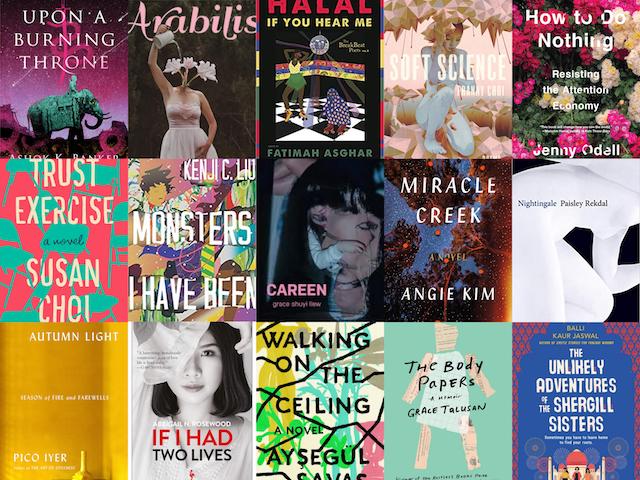
April 22, 2019
Each month over the past two years, The Margins has shared a list of new books out by Asian diasporic writers. Here’s our latest as we launch into spring. Look back into our bookmarks archives to add to your reading list.
 Arabilis by Leah Silvieus
Arabilis by Leah Silvieus
Leah Silvieus’s new collection move through faith, memory, and the family to talk about the fraught narratives of adoption, religion, and rural life. As E.J. Koh writes of the collection, Arabilis is “a violent baptism, anointed grief… an incantation that rises from the dead, to claim what was lost and must be regained.” (Sundress Publications, March 14)
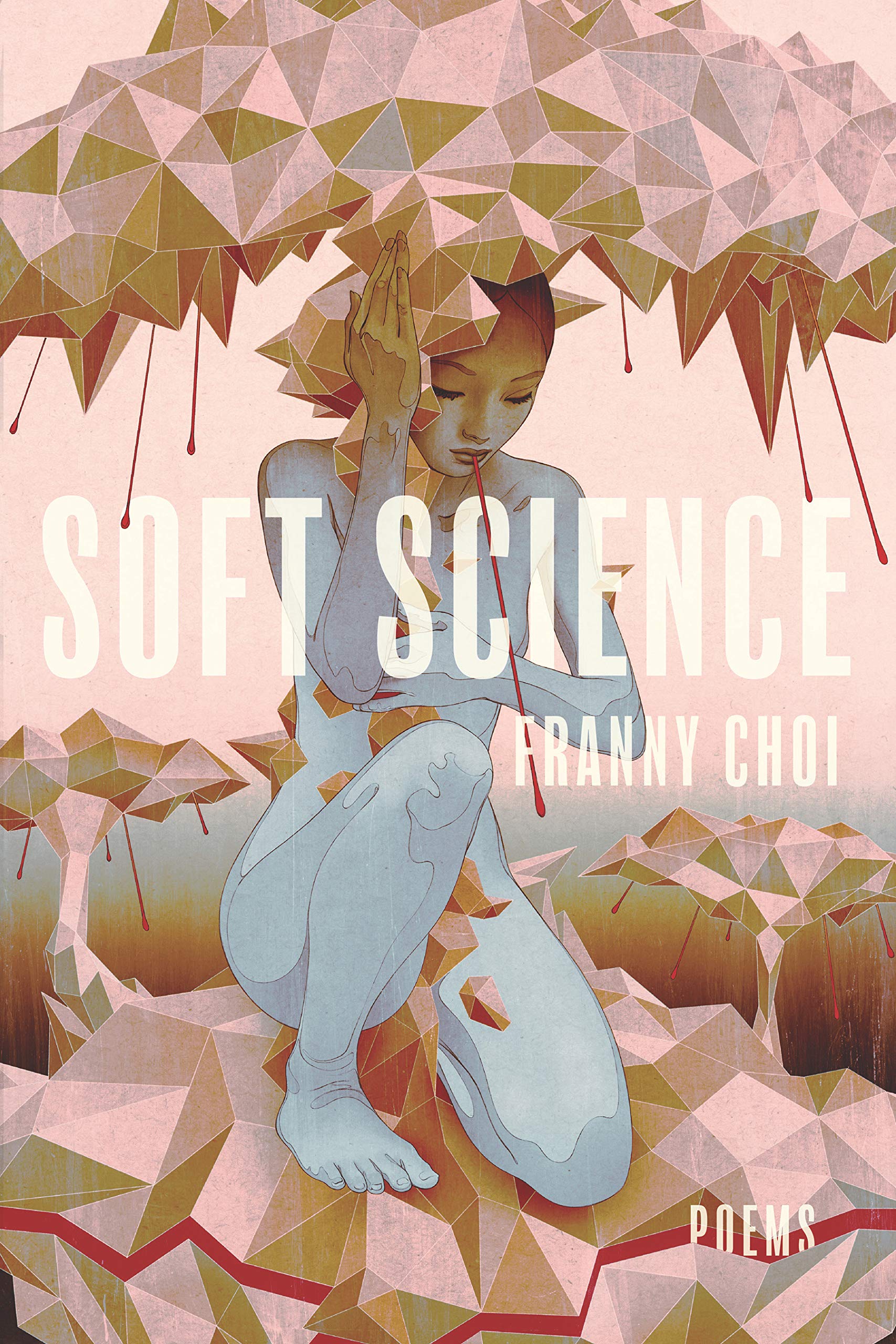 Soft Science by Franny Choi
Soft Science by Franny Choi
Franny Choi’s highly anticipated latest collection explores the relationship between intimacy, technology, sisterhood, sex, and race. Soft Science‘s “conceptual heft, formal virtuosity, queer imagination, multi-dexterous approach to language, and tonal intricacy” make it one of the most celebrated collections released this year. (Alice James Books, April 2)
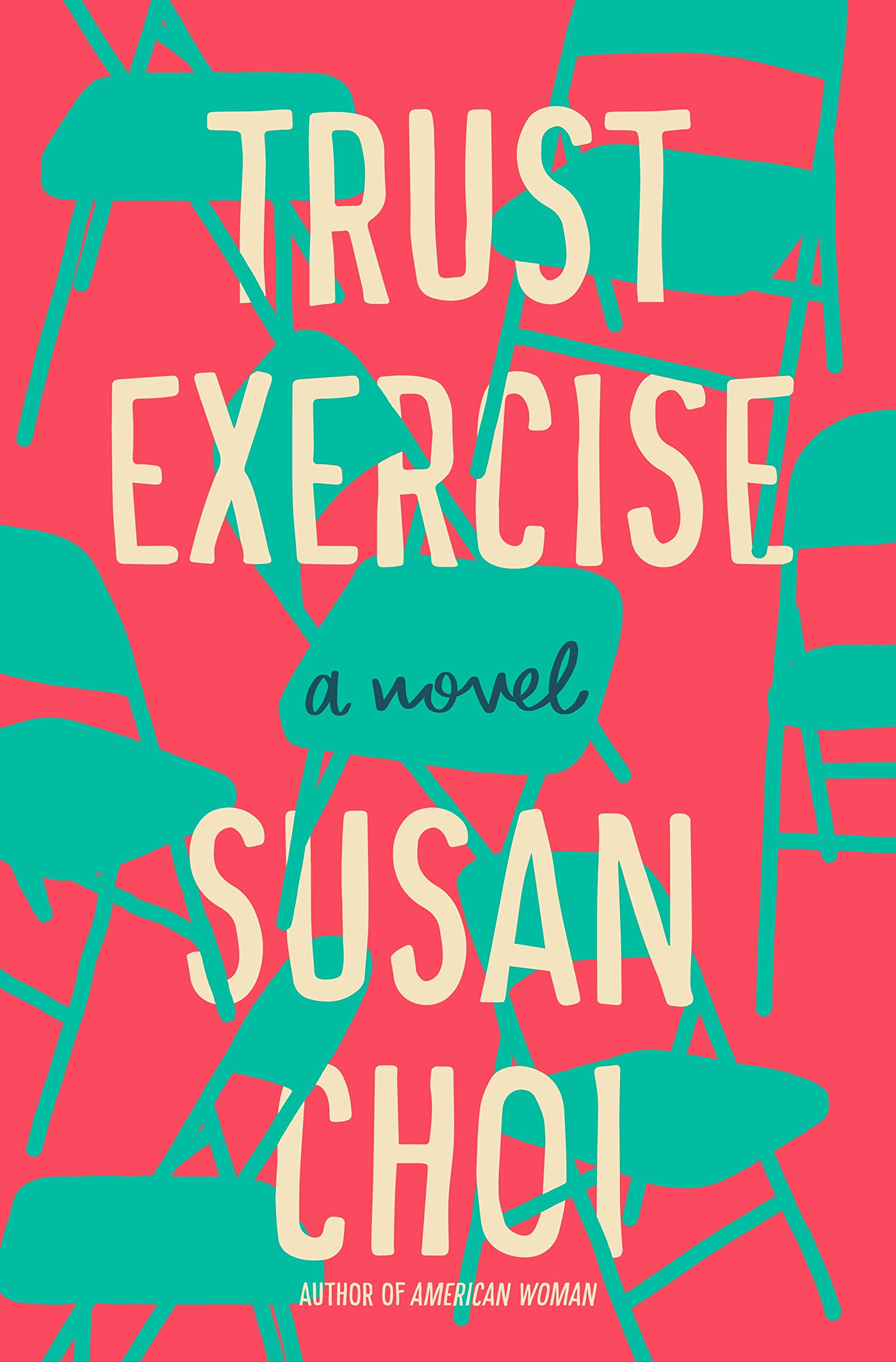 Trust Exercise by Susan Choi
Trust Exercise by Susan Choi
Set in a performing arts high school in the South in the 1980s, Susan Choi’s fifth novel Trust Exercise begins as the story of the blurry boundaries of youth, consent, and desire, and turns into a meta-narrative on the nature of truth in fiction. Read an interview with Choi on The Margins. (Henry Holt & Co., April 2)
 Halal If You Hear Me edited by Fatimah Asghar and Safia Elhillo
Halal If You Hear Me edited by Fatimah Asghar and Safia Elhillo
Edited by poets Fatimah Asghar and Safia Elhillo, Halal If You Hear Me is an anthology of writing by women, queer, nonbinary, and trans Muslims, focusing on the intersection of blackness and brownness, the act of [re]claiming space, and what it means to exist within an Islamophobic world. Featuring works by poets like Tarfia Faizullah, Beyza Ozer, and Angel Nafis, this collection is a celebration of “multiple, intersecting identities” while “dispel[ling] the notion that there is one correct way to be a Muslim.” (Haymarket Books, April 29)
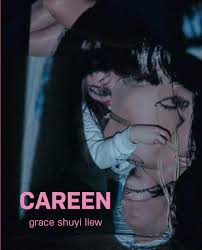
Careen by Grace Shuyi Liew
Swinging between narratives of desire, individual longing, and histories of displacement, Grace Shuyi Liew’s Careen brings together “fairy tales and video games, fetish, sex, and politics, perennial mothers and daughters jumping off cliffs, global cities and statelessness,” in one new collection. (Noemi Press, April 2)
 How To Do Nothing by Jenny Odell
How To Do Nothing by Jenny Odell
Jenny Odell analyzes a culture that privileges novelty and the attention economy of the modern day world. In How to Do Nothing, she invites us how to reclaim the self in relation to the world and how doing nothing results in a more intentional and nuanced approach to productivity and care. (Melville House, April 9)
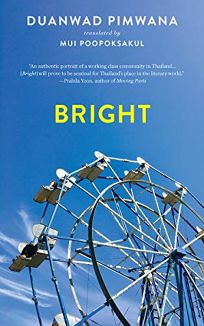 Bright by Duanwad Pimwana, translated from Thai by Mui Poopoksakul
Bright by Duanwad Pimwana, translated from Thai by Mui Poopoksakul
Duanwad Pimwana’s debut novel captures the life of five-year-old Kampol after he is abandoned by his family. After being taken in by the grocer Chong, Kampol goes on a number of adventures in his small community. Yet, this cannot stop the “loneliness so merciless that it kills [his] appetite.” (Two Lines Press, April 9)
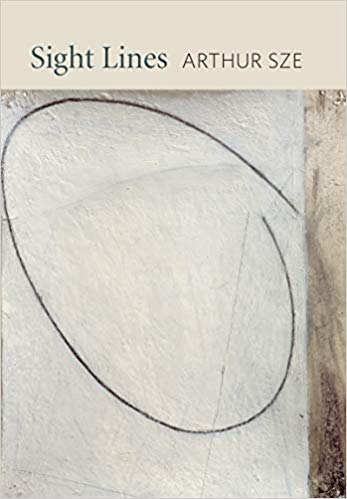 Sight Lines by Arthur Sze
Sight Lines by Arthur Sze
Legendary Asian American poet Arthur Sze returns with a new collection that moves through space, time, and voice, collecting together narratives from botany, philosophy, and astronomy in these “dazzling poems of connectivity and multiplicity.” (Copper Canyon Press, April 9)
 If I Had Two Lives by Abbigail Rosewood
If I Had Two Lives by Abbigail Rosewood
Framed in three major parts, If I Had Two Lives follows the main character from a military camp, through various places in the United States, and finally to Montauk, where she falls under the thrall of a woman named Lilah. If I Had Two Lives is a story of belonging, loss, and love in journeys: from one country to another, from childhood to adolescence, adolescence to adulthood. (Europa Editions, April 9)
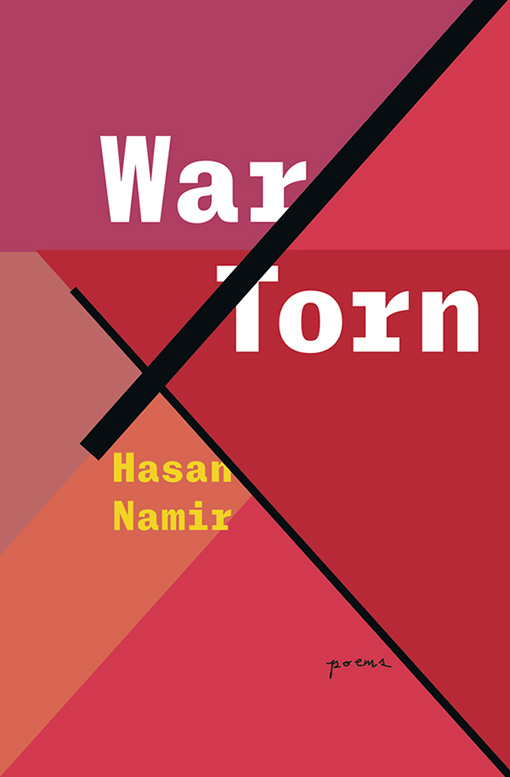 War/Torn by Hasan Namir
War/Torn by Hasan Namir
Lambda Literary-award winner Hasan Namir’s debut poetry collection interrogates religion and masculinity, all while he “mourns, loves and burns all the derogatory impulses of our continuous present.” (Book*hug, April 30)
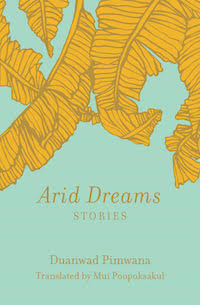 Arid Dreams by by Duanwad Pimwana, translated from Thai by Mui Poopoksakul
Arid Dreams by by Duanwad Pimwana, translated from Thai by Mui Poopoksakul
Arid Dreams is a collection of thirteen stories that illustrate discomfort and quiet horror in the ordinary as Duanwad Pimwana writes on the everyday, mundane routine of characters in the changing climate of Thailand’s perspectives on class and gender. (Feminist Press, April 16)
 Autumn Light: Season of Fire and Farewells by Pico Iyer
Autumn Light: Season of Fire and Farewells by Pico Iyer
After Pico Iyer’s father-in-law dies suddenly, he begins to grapple with questions of aging, death, and family through deep ruminations on Japanese culture and history. As he and Hiroko revisit family stories and Japan’s mourning rituals, “Iyer offers us a singular view of Japan, in the season that reminds us to take nothing for granted.” (Knopf, April 16)
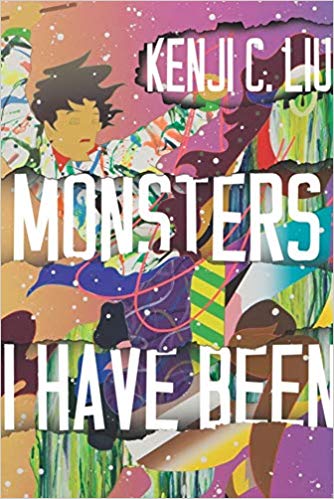 Monsters I Have Been by Kenji C. Liu
Monsters I Have Been by Kenji C. Liu
Kenji C. Liu uses frankenstein poetry (frankenpo) to take and (re)create language in order to investigate the link between violence and toxic masculinity in modern society. With poems that looks at questions of hyphenated ownership, text mutation, and dehumanization, Monsters I Have Been looks at feral poetry and monstrous reinventions in a new light. (Alice James Books, April 16)
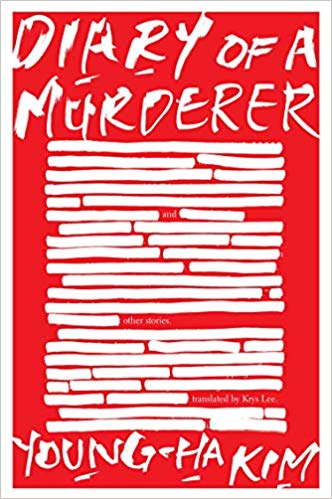 Diary of a Murderer by Young-Ha Kim, trans. Krys Lee
Diary of a Murderer by Young-Ha Kim, trans. Krys Lee
Young-Ha Kim writes on the blurring boundaries of reality and confusion through four short stories. In the title story, an ex-serial killer suffers from memory loss. In other stories, two old school friends meet again to have an affair; a family falls apart after reuniting with their kidnapped son; and a writer in New York is overcome by bizarre visions. Diary of a Murderer is a “wild, erotic ride about pursuing creativity at the expense of everything else.” (Mariner Books, April 16)
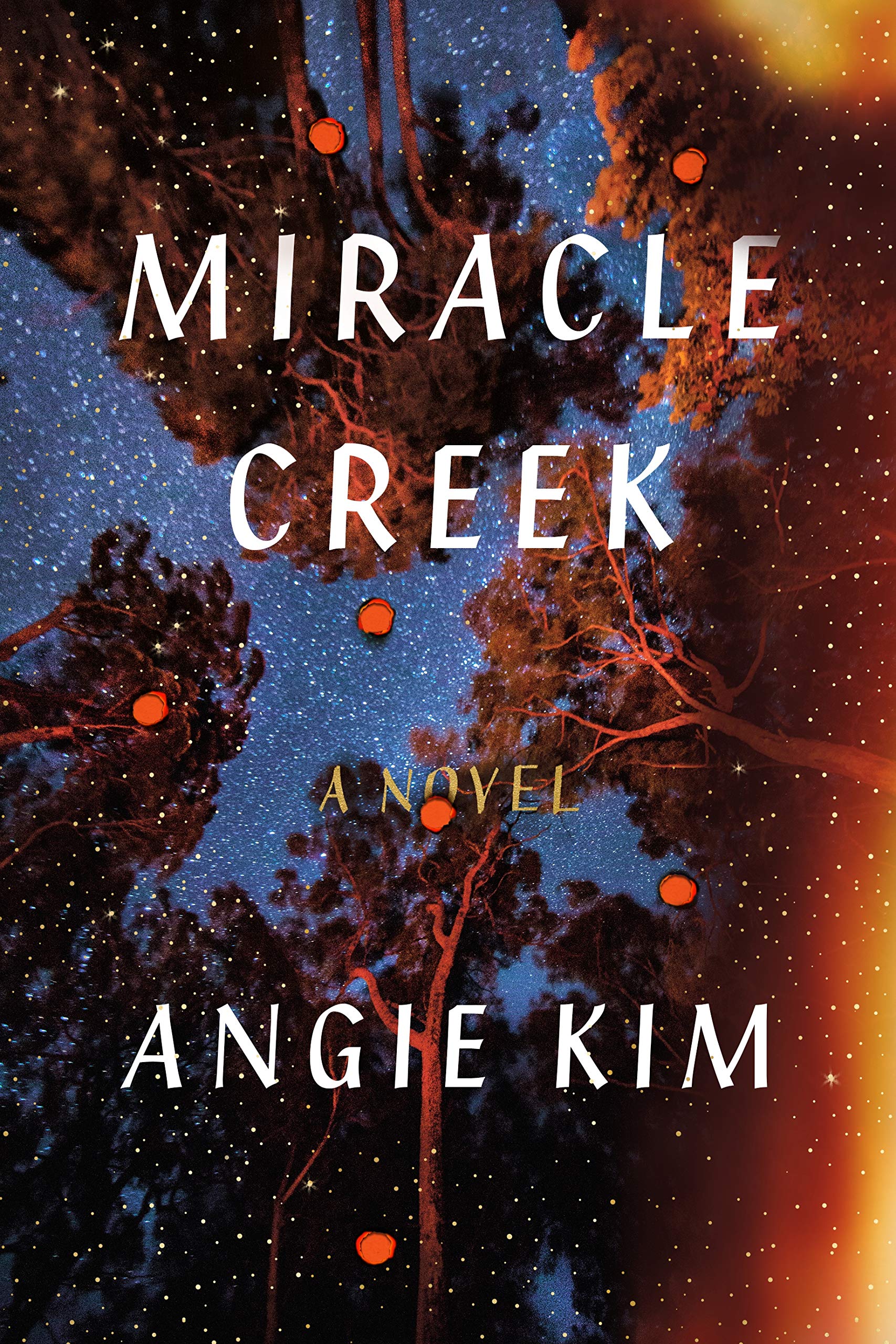 Miracle Creek by Angie Kim
Miracle Creek by Angie Kim
Miracle Creek revolves around a mother of an autistic boy who is on trial for setting a fire to a hyperbaric oxygen chamber ‘Miracle Submarine’, causing the death of two people, including her son, and seriously injuring four other patients. But it becomes obvious that other people involved in the fire are hiding secrets which are key to solving the mystery. Kim’s non-traditional immigrant story and the process of shattering and healing that characters face individually and collectively offer insight into the human experiences of guilt and shame. (Sarah Crichton Books, April 16)
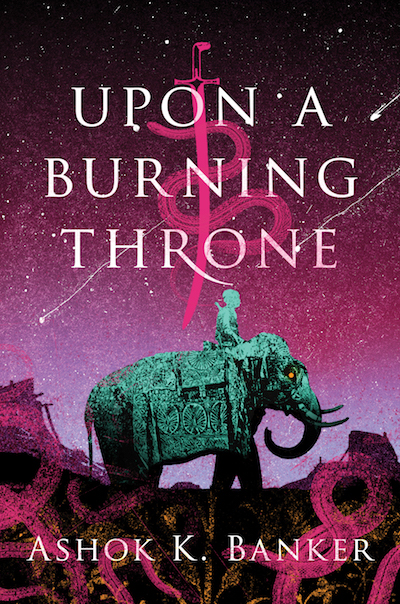 Upon a Burning Throne by Ashok K. Banker
Upon a Burning Throne by Ashok K. Banker
Set in a world where gods walk amongst men, Upon a Burning Throne contains an “epic fantasy world full of constantly warring tribes, matriarchal societies, powerful sages that pop out of lakes, and the gods and goddesses very close to all the action.” (John Joseph Adams/Houghton Mifflin Harcourt, April 16)
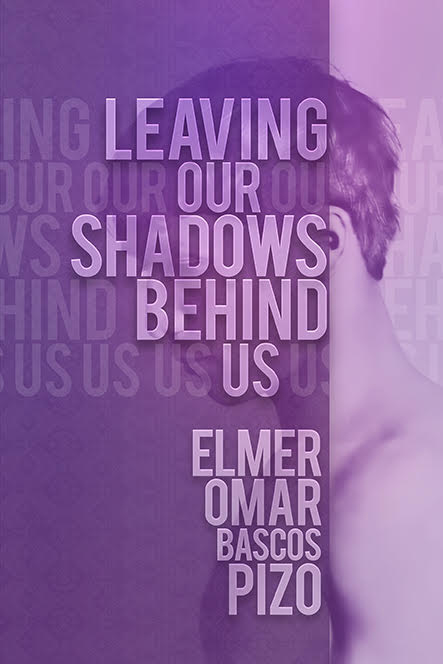 Leaving Our Shadows Behind Us by Elmer Omar Bascos Pizo
Leaving Our Shadows Behind Us by Elmer Omar Bascos Pizo
Elmer Omar Bascos Pizo’s debut poetry collection is an autobiographical collection that follows the writer across countries and time, as he recounts growing up in the Philippines, working as a migrant worker in the Middle East, and his life in Hawai’i. (Bamboo Ridge Press, April 25)
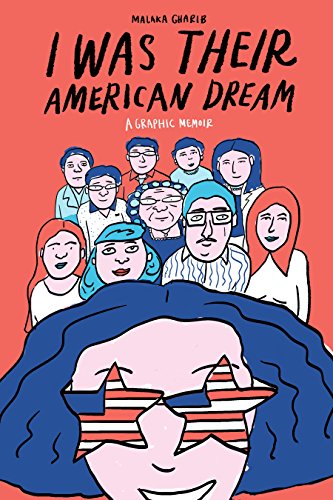 I Was Their American Dream by Malaka Gharib
I Was Their American Dream by Malaka Gharib
In this new graphic memoir, Malaka Gharib reflects on identity, coming-of-age experience, and the legacies of immigrants. Touching upon her life as the child of Egyptian and Filipino parents, Gharib writes on navigating her family’s different customs and the tensions between cultural values and American culture. I Was Their American Dream is both a celebration of American immigrants and the author’s own personal story. (Clarkson Potter, April 30)
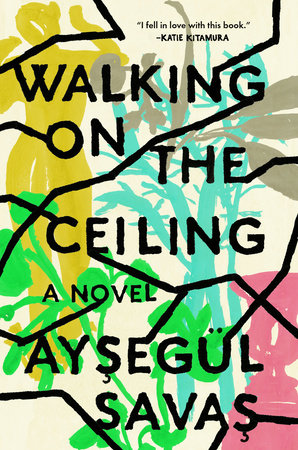 Walking on the Ceiling by Ayşegül Savaş
Walking on the Ceiling by Ayşegül Savaş
Set in Paris and Istanbul, Walking on the Ceiling follows Nunu, a young woman who has arrived in France alone, where she falls into an unexpected friendship with M., an older British writer famous for his novels about Turkey. As Nunu recounts stories from her life in Istanbul with M. as research for his new novel, she is forced to face the truth of why she left her home. (Riverhead, April 30)
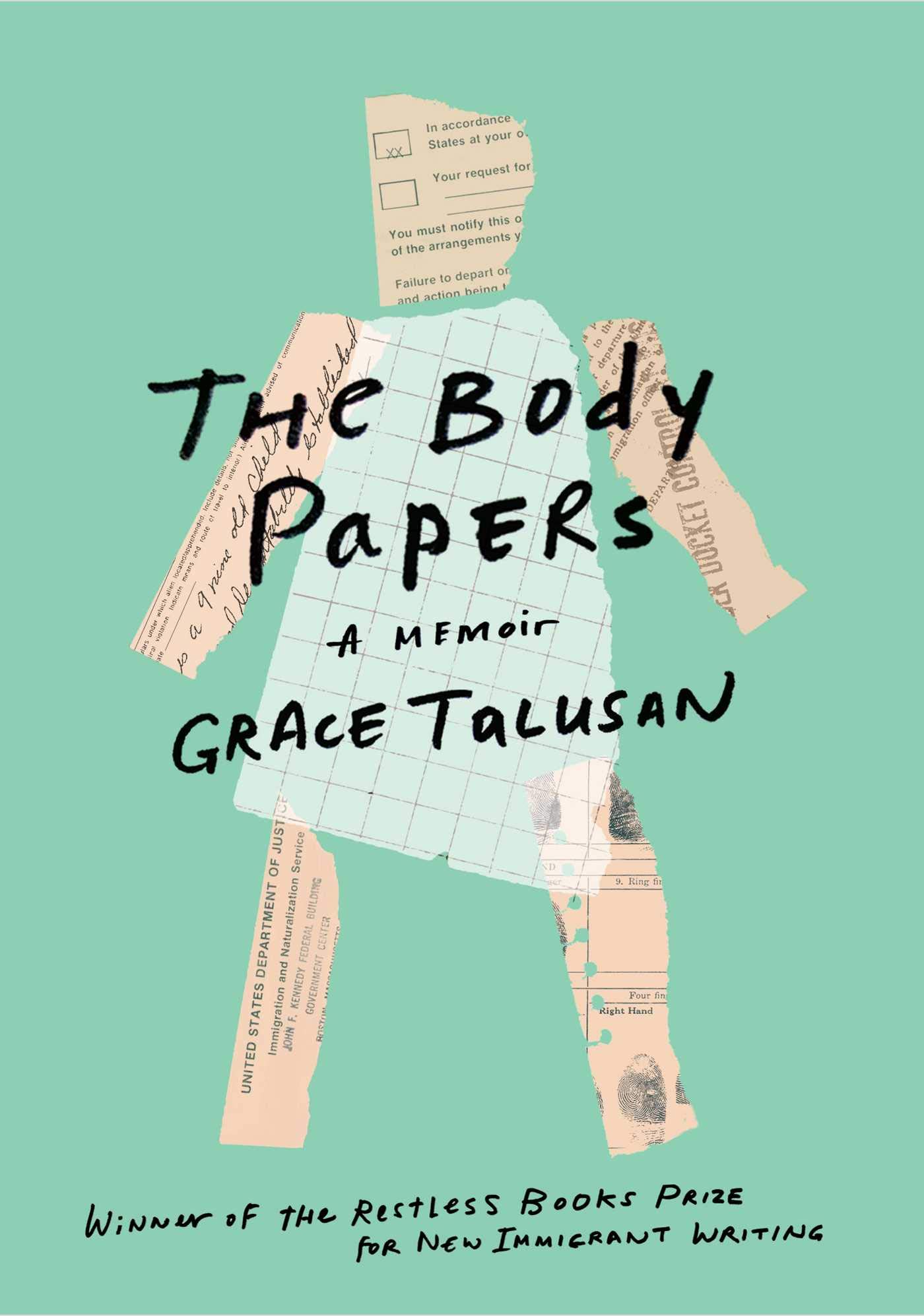 The Body Papers by Grace Talusan
The Body Papers by Grace Talusan
The Body Papers looks at the ambiguity of identities in physical, textual, and imaginary bodies as Grace Talusan retraces her memories as an immigrant and survivor of trauma and illness using bodily papers like immigration papers, test results, and legal certificates that offer contradictory and paradoxical perspectives on what it means to be a “perfect immigrant” while undocumented. (Restless Books, April 2)
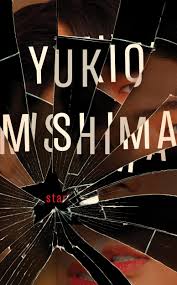 Star by Yukio Mishima, translated by Sam Bett
Star by Yukio Mishima, translated by Sam Bett
Written after Mishima’s own experiences acting in the film Afraid to Die, Star is a psychological portrait of a neurotic movie star filming a yakuza movie. This “landmark novel of 20th century Japan” is newly translated into English by Sam Betts. (New Directions, April 30)
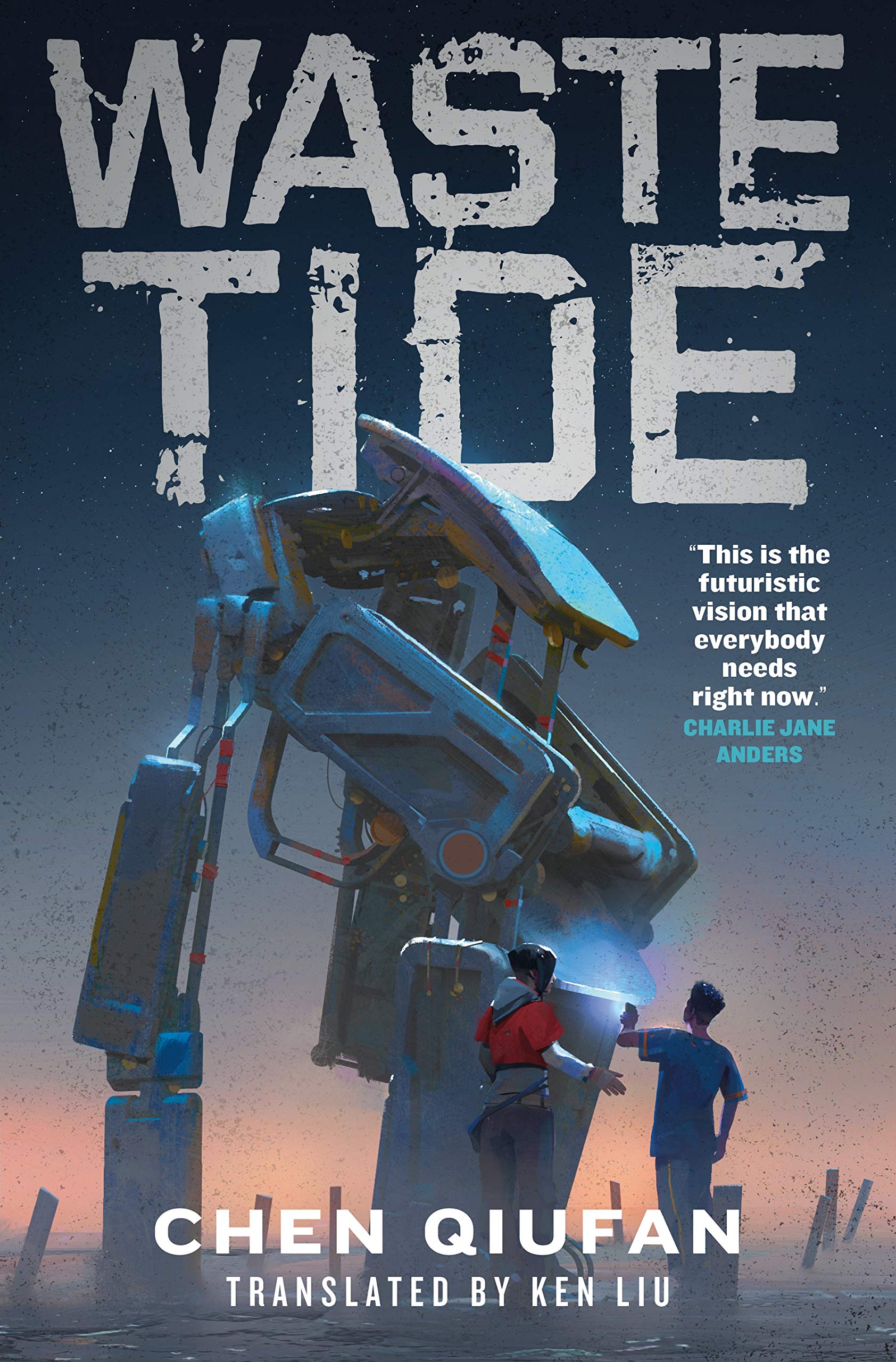 Waste Tide by Chen Qiufan, translated by Ken Liu
Waste Tide by Chen Qiufan, translated by Ken Liu
Silicon Isle is where electronic garbage from cell phones to bionic enhancements are sent to be recycled. Waste workers toil their lives away on the island, hoping to eventually enjoy the wealth they’ve created for their employers, the three clans who have ruled the isle for generations. As local gangs, American investors, and ecoterrorists fight for control over the isle in this Chinese sci-fi novel, Chen Quifan asks us to consider our relationship to the earth, to each other, and the technologies we embrace. (Tor Books, April 30)
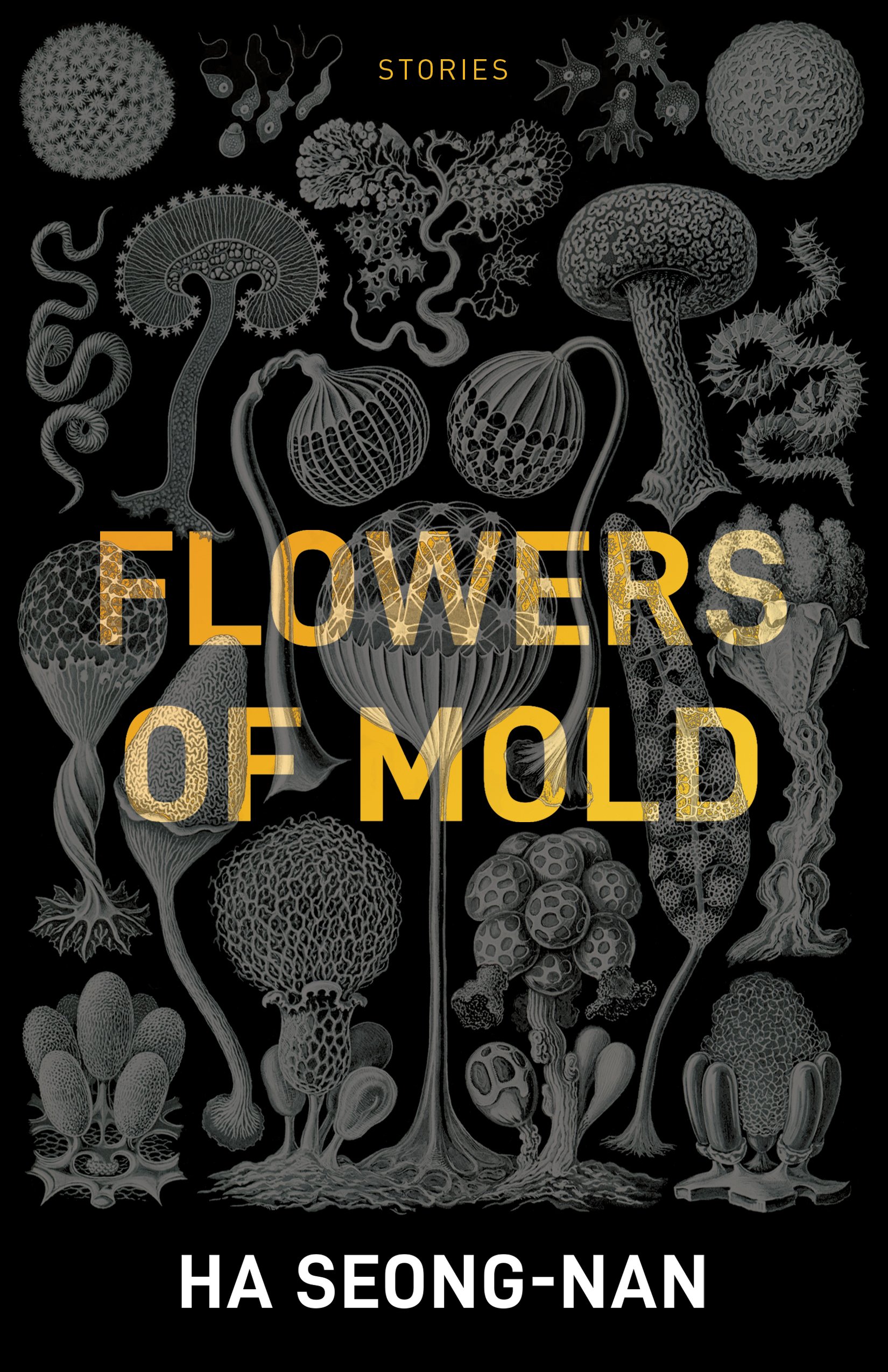 Flowers of Mold by Ha Seong-nan, trans. Janet Hong
Flowers of Mold by Ha Seong-nan, trans. Janet Hong
Flowers of Mold is a collection of ten short stories that revolve around the spiraling, complex nature of human emotions. From garbage bags to spatulas, Ha Seong-nan uses mundane objects and settings in the modern world to reflect on the costs of the human experience and those “who have found themselves left behind by an increasingly urbanized and fragmented world.” (Open Letter, April 23)
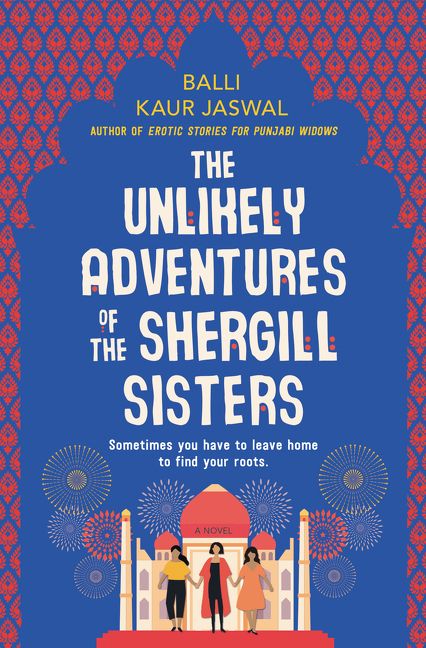 The Unlikely Adventures of the Shergill Sisters by Balli Kaur Jaswal
The Unlikely Adventures of the Shergill Sisters by Balli Kaur Jaswal
Three sisters named Rajni, Jezmeen, and Shirina make a pilgrimage outlined in detail according to their mother’s dying wishes. While the three were not close while growing up and even held resentments towards each other, being in close proximity after their mother’s death forces them to acknowledge their issues and how to move forward. Jaswal offers a nuanced portrayal of family dynamics and sisterhood, traditional and modern thinking, and survival after loss.
(William Morrow, April 30)
 Indigenous Literatures from Micronesia edited by Evelyn Flores and Emelihter Kihleng
Indigenous Literatures from Micronesia edited by Evelyn Flores and Emelihter Kihleng
This new anthology brings together multi-genre work by more than seventy Indigenous Micronesian writers. Spanning the multiple languages spoken in the region—including Chamorro, Yapese, Marshallese, and Nauruan—and including works from its many regions, Indigenous Literatures from Micronesia is the first anthology of its kind, and includes poetry, short stories, critical essays, chants, and plays. (University of Hawaii Press, April 29)



